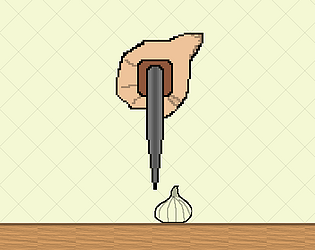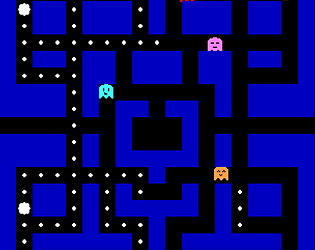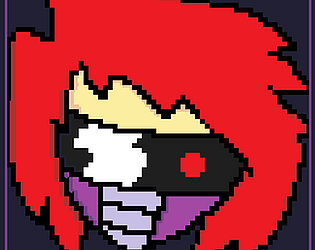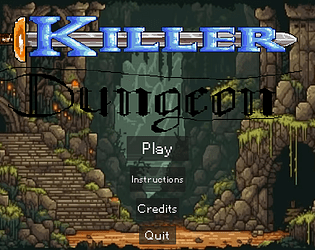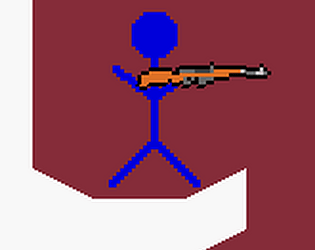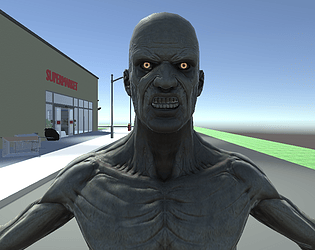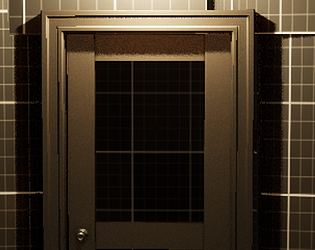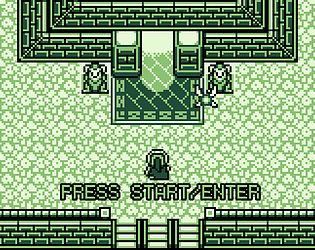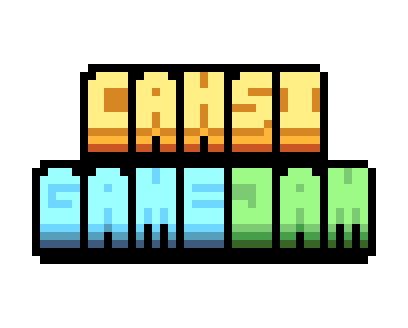
This jam is now over. It ran from 2023-11-10 22:00:00 to 2023-11-13 22:45:00. View results
“Everyone has great ideas. What makes great games is the people willing to bring their great ideas to life through hard work and dedication. Learn to code, learn to draw, learn to write compelling stories. Learn all of it. Do it. Don't tell yourself "Oh I'm not good at that". Nobody's born an artist, a coder, or a writer. You become one. Get on it.”
Theme
The theme for the jam is "roles reversed".
Let us take on a role that we don't normally get to play. So maybe that's Mario but instead of being Mario, you are Bowser. Maybe that's Pong - but you play as the ball.
That being said - you can interpret this theme however you like. How else can you explore the concept of reversing roles? Get creative and think outside the box!
Prizes
1st Prize - $100
Quick Links
Discord
Details
- CAHSI Game Jam is a game making marathon, where solo or with a team you have to make a game in only 72 Hours.
- Who can enter? Anyone who is eager to learn and create their first video game.
- What is the theme? The theme will be announced when the jam officially begins!
- What can I make my game in? Anything, provided you can upload a file that runs on Windows or browsers, and doesn't require any additional hardware or software.
- What assets can I use? The game should be developed during the jam, but you may use pre-existing code and can use whatever art and audio assets you have the legal right to use.
- Who will judge the games? Games will be judged by staff. All of the results will be revealed when this process is over.
- Where is the event taking place? The event will be in a hybrid format, with an optional physical workspace provided in a classroom at the University of Puerto Rico, Mayaguez Campus. The specific classroom location will be announced soon for those who prefer to work together in person.
- How large can teams be? There is no limit to team size. However, we recommend that you keep your team relatively small for better communication.
- Is there a Discord I can join? Yes! click here
Rules
Allowed :
- Participate solo or with a team
- The reuse of code, previously made assets
- Use of any Game Engine ( Godot, Unity,Unreal, GameMaker, Pygame, etc..)
Useful (optional):
- Make sure you have a web version or at least a windows version of the game (keep in mind that by not providing a web build not all the participants will be able to play and rate your game)
- Follow the theme of the jam
- Make sure your game works when submitted
Important (mandatory)
- Only submissions for this jam are allowed
- Don’t submit already created games! Instead, create the game during the specified Jam period
- No late submissions are allowed. Be sure to check the itch.io's counter as this is the most accurate one
- Not allowed: discriminatory, offensive, or NSFW content or behaviors.
Voting
- Technical - Does the game work? Does the game show off the engine? Does it do anything particularly impressive? Is it feature rich?
- Artistic - Is it pretty? Are the sound and visuals effective and fitting? Is the style coherent to the gameplay? Are the text boxes legible?
- Design - Does the game teach you how to play it? Do the mechanics make sense?
- Gameplay - Is it fun? Does the difficulty scale? Are there accessibility options? Have I played the same game before or is it innovative?
- Theme - Does the game fit the theme? Is it surface level or is the theme at the core of the game?
Golden Rules of Rapid Game Development
1. Keep. It. Stupid. Simple.
Less is more. Reduce to your core concept. The simpler the game concept:
- The clearer the game rules
- The lesser effort towards implementation
- The earlier a prototype exists
- The quicker play testing can start
- The faster flaws are recognized and dealt with
2. Play to your strengths.
Get to know your teammates intimately. What are their expertise, their specialties, their professional and gaming preferences? Which tools and development environments are people familiar with?
3. Paper Prototyping
If at all possible for your concept: Do paper prototyping. It takes very little time and effort, and quickly shows issues in rules design and general Fun-ness of the game.
4. Align Vision
Make sure that everyone is absolutely, unequivocally, completely aligned on ideas how the game will be in rules, art and mood and technical design. Reach consensus, document and review, before writing a single line of code! But again, keep it simple!
5. Choose your foundations wisely
Choose the best tools, libraries or development environment for the situation. Consider both familiarity in the team members and the type of game desired.
6. Task Distribution
Define tasks clear and concise. Avoid any ambiguity whatsoever. Distribute these tasks wisely. Every team member needs to have a clear role in general and an impressive to-do list at any time. Organize this: Class diagrams, Art asset lists, Scrum, etc.
7. Early Play Testing
Do your play testing as early as possible. Together with paper prototyping, this is extremely valuable in recognizing game flaws. Bonus points for involving an audience outside the team.
8. Version Control Use it.
You'll thank me after that game breaking bug 10 minutes before the deadline. (Make sure everyone understands whatever version control system is used!)
9. Eat and Sleep
Nobody likes a sleep/food deprived (or even sick!) zombie introducing more bugs than features. A shower might also help but is optional depending on circumstances.
10. Keep. It. Stupid. Simple.
Repeated because it is That Important!
All rights to the games created belong to the respective team that created them. The organizers will not retain any video game created in this Game Jam.
Submissions(13)
No submissions match your filter



